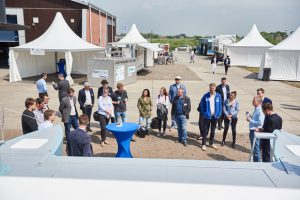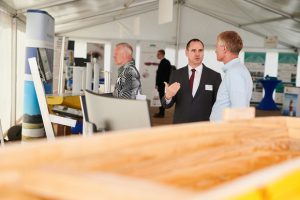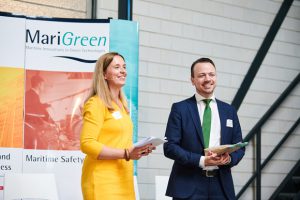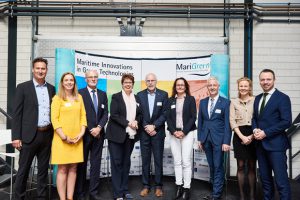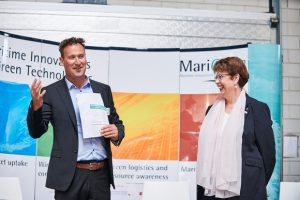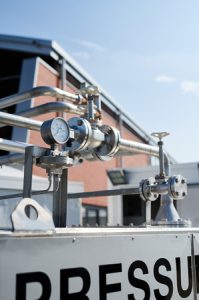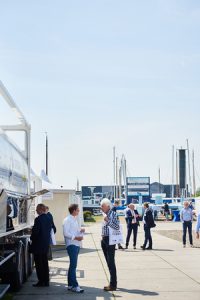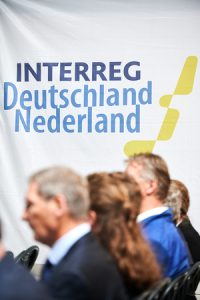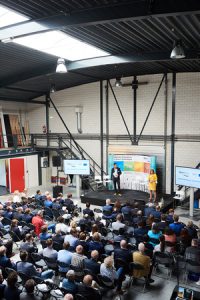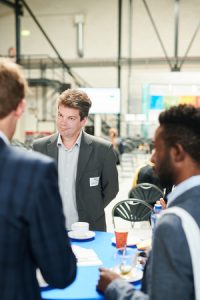May 23rd 2019
German and Dutch companies and knowledge institutes present future-oriented innovations for shipping at the closing conference of the INTERREG project MariGreen.
Heeg (NL) „German-Dutch cooperation within the framework of GreenShipping has already become a tradition“, Minister Birgit Honé of the Ministerium für Bundes- und Europaangelegenheiten und Regionale Entwicklung in Lower Saxony welcomed the approximately 170 guests at the closing conference of the German-Dutch cooperation project „MariGreen“. However, the subject of GreenShipping did not lose any of its topicality, according to Minister Honé. The intensification of the climate debate has dramatically increased the demands on shipping in recent years.
The MariGreen project responds directly to these demands and has developed innovative products and processes in 12 sub-projects to improve the environmental balance, but also for the economic efficiency and sustainability of shipping. „Not to disappear into the drawer, but for actual application“, that was the claim of the initiators MARIKO GmbH and FME from the start of the MariGreen project in 2015. They are therefore very pleased with the multitude of project results, which were presented live in the form of tangible prototypes on the Innovation Market at the company premises of Heeg Marine Motors. The topics ranged from wind propulsion systems, the use of liquefied natural gas (LNG) and hydrogen to state-of-the-art logistics concepts and innovative safety training.
This diversity reflects the essence of the discussion with companies in the framework of the panel discussion: a wide range of solutions is needed to promote the energy transition in the maritime sector and to increase the competitiveness of the sector. Carl-Ulfert Stegmann, Managing Director of AG Norden Frisia in Norddeich, Germany, therefore urges the Federal Government to increase its support to the shipping companies and not only to selectively promote the use of individual fuels, as is currently the case in Germany under the LNG Directive. Paul Melles, managing director of Rerderij Doeksen in Harlingen, also shares this view. He expects politicians not to „go to every hype and allow themselves to be influenced by uncontrolled lobbying“, but to make an objective and scientific contribution to the debate on the „fuels of the future“. Prof. Kapt. Michael Vahs of Emden/Leer University of Applied Sciences provided scientific evidence that wind drive systems also offer a huge potential for emission reduction in shipping and reported on the successes achieved in the MariGreen project in the context of the implementation of the Flettner rotor (EcoFlettner) and the development of the water taxi (Green Water Taxi).
The added value of the German-Dutch cooperation was highlighted many times during the event. „Only you go faster, but together you go further“, summarizes Gedeputeerde Sander de Rouwe from Friesland and called on all guests to stand up for a united Europe. To ensure German-Dutch cooperation for the future, Franz-Josef Sickelmann, Regional Commissioner for Regional Development in Weser-Ems, and Paul Schilderink, Ministry of Economic Affairs and Climate, have outlined the plans for the new INTERREG funding period starting in 2021. This is good news for the MariGreen consortium of 65 project partners. „We have achieved and learned a lot – both technologically and interpersonal, this is a good basis for the further development of the German-Dutch maritime cluster“, says Katja Baumann (MARIKO GmbH) and Leo van der Burg (FME), who are already preparing for a next cooperation project. GreenShipping Ahoy!




